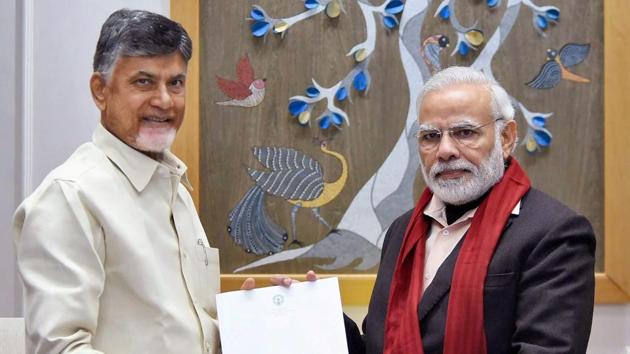TDP quits NDA: Why it is hard to grant ‘special status’ to Andhra Pradesh now
It’s the tight fiscal glide-path of the Centre and India’s changed fiscal federalism that will make special funds for the states a rarity in the future.
The NDA government has sought to foster a friendly, non-adversarial relationship between the Centre and states since it came to power in 2014. States don’t compete but join forces with the Centre to spur economic development. That’s what the dictum “cooperative federalism” signifies. Andhra Pradesh CM N Chandrababu Naidu will have none of that.

According to Naidu, his state deserves to be treated as a special case so that it gets more central funds. That’s a demand Andhra Pradesh has been making since it was carved up in 2014 to create Telangana. After serving as the joint capital of Andhra Pradesh and Telangana until 2024, Hyderabad will be transferred exclusively to the latter.
There are two defining characteristics of India’s federalism. One, the Constitution has a very strong centralising tendency. The word Centre entails a certain bias in favour of the Union government. Two, India is a case of asymmetrical federalism, meaning special provisions are made for some states, given their historical antecedents.
The special category status was first introduced in 1969 by the 5th Finance Commission (FC). Under a constitutional mandate, the mechanism for sharing of financial resources between the Centre and states is fixed by the FCs every five years. The 5th FC made a case for preferential treatment of disadvantaged states.
The 14th FC in 2015 increased the states’ share of net Union tax revenues to 42% from 32%. According to finance minister Arun Jaitley, following this, the case for ‘special status’ doesn’t exist anymore. A central government circular was issued in 2016.
Writing in The Hindu on March 11, economist M Govinda Rao, a member of the 14th FC, said the commission did not make any recommendation on ending special categories. The 14th FC did explicitly state that sharing of taxes should be the primary route for transfer of resources to states. Rao did not answer calls from HT.
It’s the tight fiscal glide-path of the Centre and India’s changed fiscal federalism that will make special funds for the states a rarity in the future. The days of the Planning Commission, the other institution that allocated resources to states, are over. It was abolished and replaced in 2015 by the NITI Aayog , meant to facilitate the working together of the Union and states as equals.






